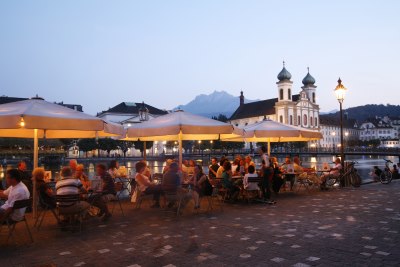Information
Tournament Format
The 10 teams are divided into two, five-team groups in the Preliminary Round.
After a single round-robin series in each group, the top four teams from each group advance to the Playoff Round while the fifth-placed team in each group moves to the Relegation Round.
The top four placed teams from the Preliminary will play a cross-over Quarterfinal game: 1A vs. 4B, 1B vs. 4A, 2A vs. 3B and 2B vs. 3A. The winner of each Quarterfinal moves onto the Semi-Finals.
The winner of each Semi-Final game will move onto the Gold Medal Game, while the losers will play in the Bronze Medal Game.
Relegation format
The two last-placed teams play a best-of-three Relegation Round series. The third game is only played if needed. The winner of the series plays again at the 2016 IIHF World Junior Championship, while loser is relegated to Division I Group A.
Three Point System
For all games points shall be awarded as follows:
- 3 points for the winning team at the conclusion of regulation time
- 1 point for both teams at the conclusion of regulation time if the game is tied
- An additional point earned for the team winning the game in a 5-minute overtime period, or the Game Winning Shots Procedure if the teams are still tied following conclusion of the overtime period
- 0 points for the team losing the game in regulation time
Overtime Operations
If a game is tied at the end of regulation time, a five-minute overtime period shall be played immediately after an intermission of three minutes. The teams will change ends for the overtime period. The game will end when the five minutes has expired or when a goal is scored; the scoring team will be declared the winner. If no goal is scored in the overtime period then the Game Winning Shots Procedure will apply. All overtime periods of any IIHF game shall be played with each team at the numerical strength of four (4) skaters and one (1) goalkeeper.
Overtime procedure in Play-Off Games:
- In case of a tie at the conclusion of regulation time in a Relegation Playoff, Placement Playoff, Quarter Final, Semi Final and Bronze Medal Game, there will be a 10-minute sudden-death overtime period played, following a three-minute intermission.
- The teams will change ends for the overtime period.
- The team, which scores a goal during this period is the winner.
- In the Gold Medal game there will be a 20-minute sudden-death overtime period, following a 15-minute intermission during which the ice will be resurfaced.
- The teams will change ends.
- The team which scores a goal during this period is declared winner.
- If no goal is scored during the sudden-death overtime, there will be Game Winning Shot (GWS) competition ("shootout") according to the Game Winning Shots Procedure.
Game Winning Shots Procedure
If no goal is scored in the overtime period then the Game Winning Shots (GWS) procedure will apply. The following procedure will be utilized:
-
Shots will be taken at both ends of the ice surface. The 14-meter wide longitudinal centre section of the rink, between the Face-Off Spots in the neutral and end zones, will be dry-scraped by the ice-resurfacing machine prior to the Game Winning Shots during the time required to organize the program accordingly.
-
The procedure will begin with three different shooters from each team taking alternate shots. The players do not need to be named beforehand. Eligible to participate in the Game Winning Shots will be the four goalkeepers and all players from both teams listed on the official game sheet except as specified in article 3 below.
-
Any player whose penalty had not been completed when the overtime period ended is not eligible to be one of the players selected to take the shots and must remain in the penalty box or in the dressing room. Also players serving penalties imposed during the game winning shots must remain in the penalty box or in the dressing room until the end of the procedure.
-
The Referee will call the two captains to the Referee Crease and flip a coin to determine which team takes the first shot. The winner of the coin toss will have the choice whether his team will shoot first or second.
-
The goalkeepers shall defend the same goal as in the overtime period and may remain at their goal creases while the opposing team is taking a shot.
-
The goalkeepers from each team may be changed after each shot.
-
The shots will be taken in accordance with rule 509 of the IIHF Official Rule Book.
-
The players of both teams will take the shots alternately until a decisive goal is scored. The remaining shots will not be taken.
-
If the result is still tied after 3 shots by each team the procedure shall continue with a tie-break shoot-out by one player of each team, with the same or new players with the other team starting to take the tie-break shots. The same player can also be used for each shot by a team in the tie-break shoot-out. The game shall be finished as soon as a duel of two players brings the decisive result.
-
The Official Scorekeeper will record all shots taken, indicating the players, goalkeepers and goals scored.
-
Only the decisive goal will count in the result of the game. It shall be credited to the player who scored and to the goalkeeper concerned.
-
If a team declines to participate in the game winning shots procedure the game will be declared as a loss for that team and the other team will be awarded 3 points for a win. If a player declines to take a shot it will be declared "no score" for his team.
Tie breaking formula
The tie-breaking system for two teams with the same number of points in a standing will be the game between the two teams, the winner of the game taking precedence.
Due to the fact that the three-point system does not allow a game to end in a tie, then the following tie breaking procedure is applicable when three or more teams are tied in points in a Championship standing.
Should three or more teams be tied on points, then a tie breaking formula will be applied as follows, creating a sub-group amongst the tied teams. This process will continue until only two or none of the teams remain tied. In the case of two tied teams remaining, the game between the two would then be the determining tie-breaker as the game could not end as a tie. In the case of none of the teams being tied, the criteria specified in the respective step applies.
Step 1: Taking into consideration the games between each of the tied teams, a sub-group is created applying the points awarded in the direct games amongst the tied teams from which the teams are then ranked accordingly.
Step 2: Should three or more teams still remain tied in points then the better goal difference in the direct games amongst the tied teams will be decisive.
Step 3: Should three or more teams still remain tied in points and goal difference then the highest number of goals scored by these teams in their direct games will be decisive
Step 4: Should three or more teams still remain tied in points, goal difference and goals scored then the results between each of the three teams and the closest best-ranked team outside the sub-group will be applied. In this case the tied team with the best result (1. points, 2. goal difference, 3. more goals scored) against the closest best ranked-team will take precedence
Step 5: Should the teams still remain tied, then the results between each of the three teams and the next highest best-ranked team outside the sub-group will be applied.
Step 6: Should the teams still remain tied after these five steps have been exercised then Sport considerations will be applied and the teams will be ranked by their positions coming into the Championship (seeding).
Note: If not all mutual games have been played yet in an ongoing tournament, the tied teams will be ranked in the standings according to the following criteria: 1. Lower number of games played, 2. Goal difference, 3. Goals scored, 4. Positions coming into the Championship.
More information
Click here to download the IIHF’s Rule Book and Sport Regulations.
Eligibility
To play in the IIHF World Championship, the Olympic ice hockey tournament and the qualifications to these competitions, players must fulfill the following qualification requirements:
- Each player must be under the jurisdiction of an IIHF member national association
- Each player must be a citizen of the country he represents.
Acquiring a new national eligibility (The ‘two-year’ case)
When a player has changed his citizenship or has acquired another citizenship and wants to participate for the first time in an IIHF competition representing his new country he must:
- Prove that he has participated for at least two consecutive hockey seasons and 16 consecutive months (480 days) in the national competitions of his new country after his 10th birthday during which period he has neither transferred to another country nor played ice hockey within any other country.
- Have an international transfer card (ITC) that shows the transfer to the national competition of his new country and which was approved and dated at least 16 months (480 days) prior to his proposed participation.
Change of national eligibility (The ‘four-year’ case)
A player, who has previously participated in IIHF competition, can switch national eligibility (but only once in a player's life) if:
- He is a citizen of the new country of his choice.
- He has participated for at least four consecutive years (1460 days) in the national competitions of his new country, during which period he has neither transferred to another country nor played ice hockey within any other country and has not played for his previous country in an IIHF competition during this four year period.
- He has an international transfer card (ITC) that shows the transfer to the national competition of his new country and which was approved and dated at least four years before the start of the IIHF competition in which he wishes to participate.
History
The IIHF Ice Hockey U18 World Championship is an annual event organized by the International Ice Hockey Federation for national U18 ice hockey teams from around the world. The tournament is usually played in April.
Results
|
Year |
Gold |
Silver |
Bronze |
Venue |
|
1999 |
Finland |
Sweden |
Slovakia |
Füssen / Kaufbeuren (Germany) |
|
2000 |
Finland |
Russia |
Sweden |
Kloten / Weinfelden (Switzerland) |
|
2001 |
Russia |
Switzerland |
Finland |
Heinola / Helsinki / Lahti (Finland) |
|
2002 |
United States |
Russia |
Czech Republic |
Piestany / Trnava (Slovakia) |
|
2003 |
Canada |
Slovakia |
Russia |
Yaroslavl (Russia) |
|
2004 |
Russia |
United States |
Czech Republic |
Minsk (Belarus) |
|
2005 |
United States |
Canada |
Sweden |
Ceske Budejovice / Plzen (Czech Republic) |
|
2006 |
United States |
Finland |
Czech Republic |
Angelholm / Halmstad (Sweden) |
|
2007 |
Russia |
United States |
Sweden |
Tampere / Rauma (Finland) |
|
2008 |
Canada |
Russia |
United States |
Kazan (Russia) |
|
2009 |
United States |
Russia |
Finland |
Fargo (USA) |
|
2010 |
United States |
Sweden |
Finland |
Minsk / Bobruisk (Belarus) |
|
2011 |
United States |
Sweden |
Russia |
Crimmitschau / Dresden (Germany) |
|
2012 |
United States |
Sweden |
Canada |
Brno / Znojmo (Czech Republic) |
|
2013 |
Canada | United States | Finland |
Sochi (Russia) |
|
2014 |
United States | Czech Republic | Canada |
Lappeenranta / Imatra (Finland) |
|
2015 |
United States | Finland | Canada |
Zug / Lucerne (Switzerland) |
Medal Count
|
No. |
Country |
Gold |
Silver |
Bronze |
Total |
|
1 |
United States |
9 |
3 |
1 |
13 |
|
2 |
Russia |
3 |
4 |
2 |
9 |
|
3 |
Canada |
3 |
1 |
3 |
7 |
|
4 |
Finland |
2 |
2 |
4 |
8 |
|
5 |
Sweden |
0 |
4 |
3 |
7 |
|
6 |
Slovakia |
0 |
1 |
1 |
2 |
|
7 |
Czech Republic |
0 |
1 |
3 |
4 |
|
8 |
Switzerland |
0 |
1 |
0 |
1 |
Zug
WELCOME TO ZUG – a sporty and very centrally-located city
Zug is a one hour drive away from Zurich Airport. Zug enjoys beautiful undulating scenery
adjoining two lakes and is not far from the mountains. It is also known for its cherries and is a pleasant place in which to enjoy different outdoor and indoor activities. Zug serves as the home arena (named Bossard Arena) for the local club EVZ, playing in the Swiss National League A. The Bossard Arena in Zug will host group B with the home team. The semiinals and final day will also be played in Zug.
Highlights:
- Old Town
- Promenade (lakeside)
- Scenery
More info: www.zug-tourismus.ch/en


Photos: Zug Tourism
Lucerne
WELCOME TO LUCERNE - a famous and postcard-perfect town
Lucerne’s charm is legendary. Immerse yourself in this town, enjoy the magnificent landscape, stroll along the quays and don’t be surprised when you feel you never want to leave. The avant-garde Culture and Congress Centre Lucerne (KKL) designed by Jean Nouvel, is just as at-home here as historic sights which have survived for centuries. The museums, theatres and festivals provide the perfect mix of tradition and trendy, archaic customs and high-tech, making Lucerne a city of culture with a difference. The Arena in Lucerne will host group A. The semi-finals and final day will be played in Zug. The Arena of Lucerne is very centrally-located besides the lake and near downtown.
Highlights:
- Historic wooden bridge (Kapellbrücke)
- Old Town
- KKL Luzern
- Transport Museum (Verkehrshaus)
More info: www.luzern.com/en



Photos: Elge Kenneweg
Venues
ZUG ARENA
Bosshard Arena, General-Guisan-Strasse 4, 6300 Zug, www.bossard-arena.ch
LUCERNE ARENA
Regionales Eiszentrum Luzern AG, Eisfeldstrasse 2, 6005 Luzern, www.eiszentrum.ch
Exhibition Games
Find below a list of pre-competition games involving the U18 national teams that will play in the 2015 IIHF Ice Hockey U18 World Championship.
| 4 Apr. | 13:00 | Slovakia | - | Czech Rep. | Bratislava (SVK) | 2-1 GWS |
| 4 Apr. | 17:30 | Germany | - | Switzerland | Fussen (GER) | 3-2 GWS |
| 6 Apr. | 17:00 | Czech Rep. | - | Slovakia | Breclav (CZE) | 1-2 GWS |
| 8 Apr. | 19:30 | Germany | - | Japan | Fussen (GER) | 5-2 |
| 9 Apr. | 19:30 | Germany | - | Japan | Fussen (GER) | 7-3 |
| 10 Apr. | 19:30 | Switzerland | - | Sweden | Basel (SUI) | 2-5 |
| 11 Apr. | 19:30 | Germany | - | USA | Fussen (GER) | 3-8 |
| 12 Apr. | 16:00 | Switzerland | - | Russia | Lucerne (SUI) | cancelled (1-1) |
| 13 Apr. | 18:30 | Slovakia | - | Canada | Zug (SUI) | 0-5 |
| 13 Apr. | 19:00 | Sweden | - | Czech Rep. | Basel (SUI) | 1-4 |
| 13 Apr. | 19:00 | USA | - | Finland | Lucerne (SUI) | 7-2 |
| 14 Apr. | 18:30 | Germany | - | Canada | Zug (SUI) |
Click here for scores, stats and a live ticker of the pre-competition games in Switzerland.
Volunteers
Volunteers wanted!
Experience the best grass roots talent and power ice hockey at the highest level from 16 to 26 April 2015 at the U18 Ice Hockey World Championship under the motto of POWER OF THE FUTURE and register now as a volunteer using the registration form. We are looking for motivated helpers who will provide us with active support at this event. We guarantee a great and unforgettable time at the World Championship.
Media Accreditation
Accreditation for the 2015 IIHF Ice Hockey U18 World Championship in Zug and Lucerne, Switzerland, can be requested until 22 March 2015.
Click here to download the application form.
Please send the accreditation form to [email protected] and for radio/TV/video requests at the address indicated in the form.
Contacts
2015 IIHF Ice Hockey U18 World Championship
Swiss Ice Hockey Federation
Hagenholzstrasse 81
CH - 8050 Zürich
Phone +41 44 306 50 50
Fax +41 44 306 50 51












































